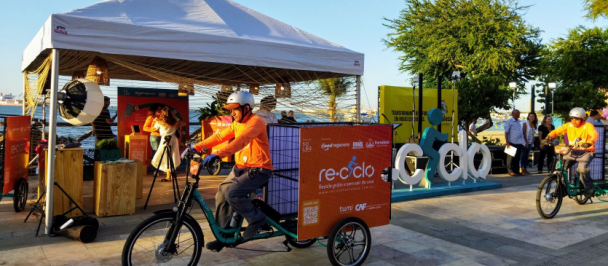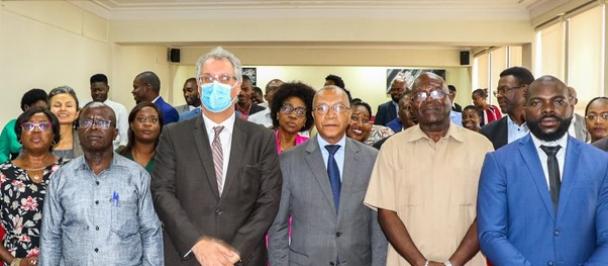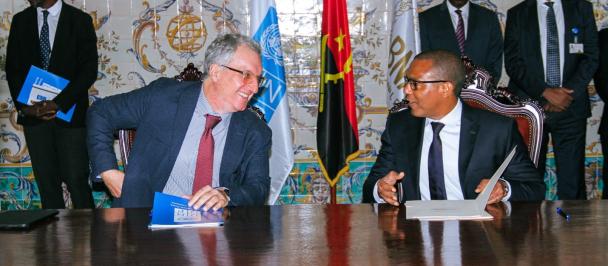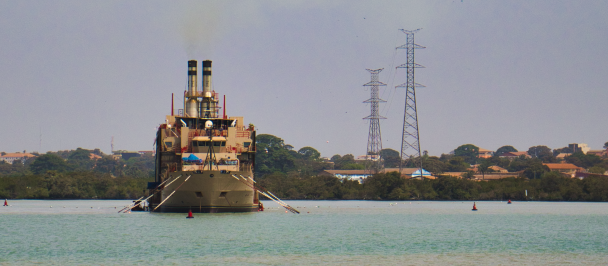Formalizing and digitalizing to succeed, leaving no one behind
23 de June de 2023
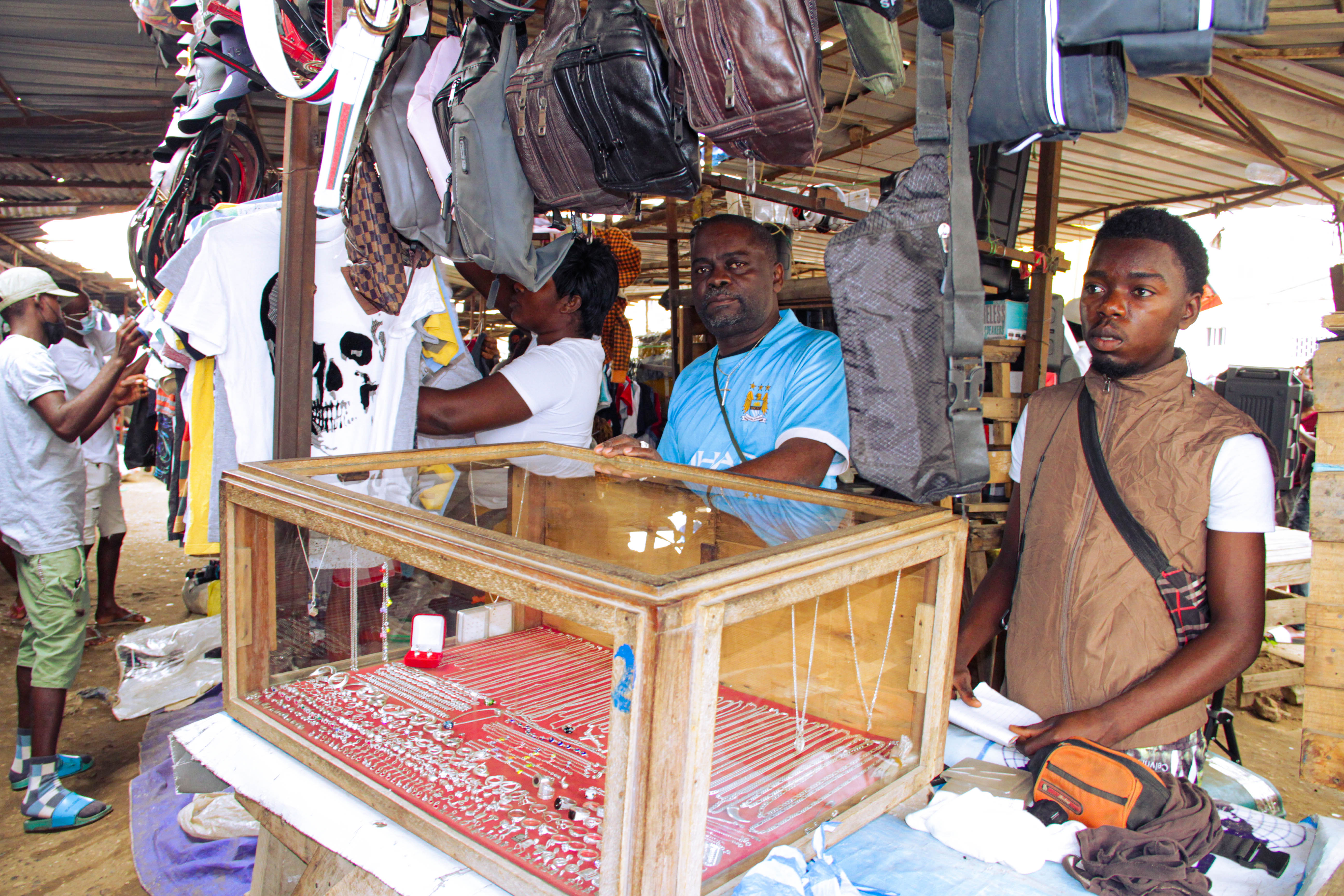
Street vendors selling their products at the Congolese market in Luanda, Angola
In Angola, widespread informality remains the major source of income for a large share of the population. According to the National Institute of Statistics (INE) study concerning Informality (2022), there are more than 9 million informal workers, of which, women are the most vulnerable with up to five direct dependents, representing (87,8%) and 92.5% are young people between 15 and 24 years old. In the last three decades, Luanda's population has grown eightfold, and the initial growth was due to rural populations fleeing the fighting in the countryside to the relative safety of the capital. Lacking skills and education, most of the city's new inhabitants turned to informal trade.
The Angolan Government responded to these challenges by adopting a COVID-19 response plan and launched the Informal Economy Reconversion Program (PREI) funded by African Development Bank, led by the Ministry of Economy and Planning (MEP) to promote a transition strategy from the informal economy to the formal economy. The first phase (PREI 1.0) which ran until August 2022, registered 248,189 informal operators in 29 markets in the 18 provinces of Angola.
Considering the substantial weight of informality in the Angolan economy and the impact of the pandemic on the informal economy, PREI seeks to promote an inclusive transition from the informal economy to the formal economy, as well as improve access to development support on business, financial literacy, and digital services (mobile money).
"My biggest dream is to be a successful entrepreneur," says Maria Sambo, while selling her products. At 55, Maria said she spent much of her life working informally in Luanda's markets - over 20 years at the Roque Market, 4 years at the São Paulo Market, and a few months at the Congolese Market - but now there is something different. "After PREI, my life changed," she says.
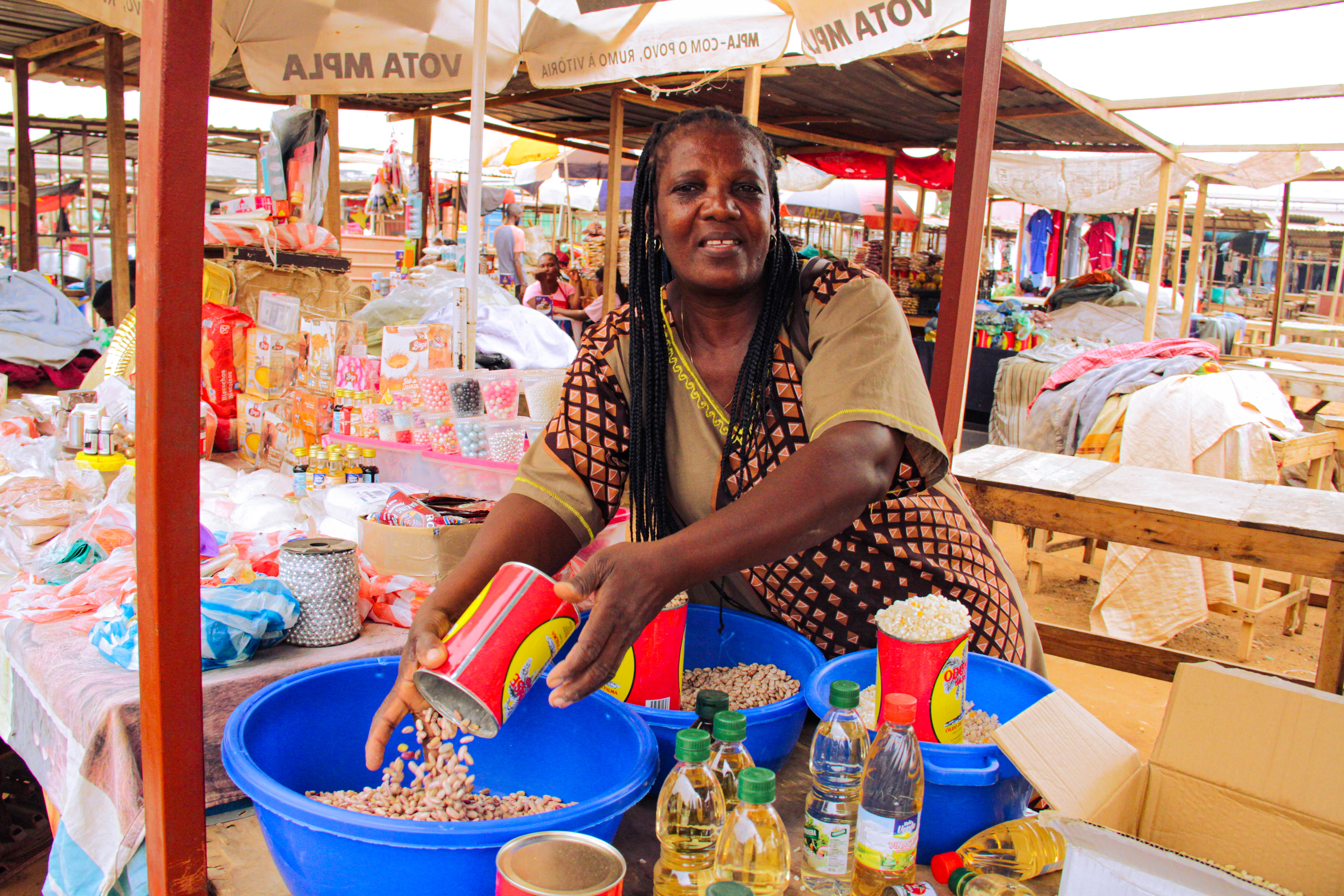
Maria Sambo shares her life-changing experience with PREI.
The formalization of an informal vendor starts with the issuance of a stand card or a street vendor card, the issuance of a tax identification number, or it can go all the way to the formal constitution and registration of a commercial company. The institutions that make up the formalization process are the municipal administrations, the Tax Administration, the National Social Security Institute, and the National Institute to Support Small and Medium Companies (INAPEM). There are also complementary services that include entrepreneurship training, financial literacy, and the services of access to micro-credit and Mobile Money.
To support the transition and business development, INAPEM - with the technical assistance of UNDP, has been implementing the pilot project called Crescer Digital since 2022 (in Luanda, Benguela, Bié, Huambo, Cabinda, and Huila) to train micro-entrepreneurs with digital skills within the scope of management, marketing, and sales with the aim of increasing the efficiency, productivity, diversification, and profitability of its micro-businesses. According to data collected from microbusiness involved in the Crescer Digital initiative, more than 40% has adopted digital tools for financial and commercial management and 76% increased sales.
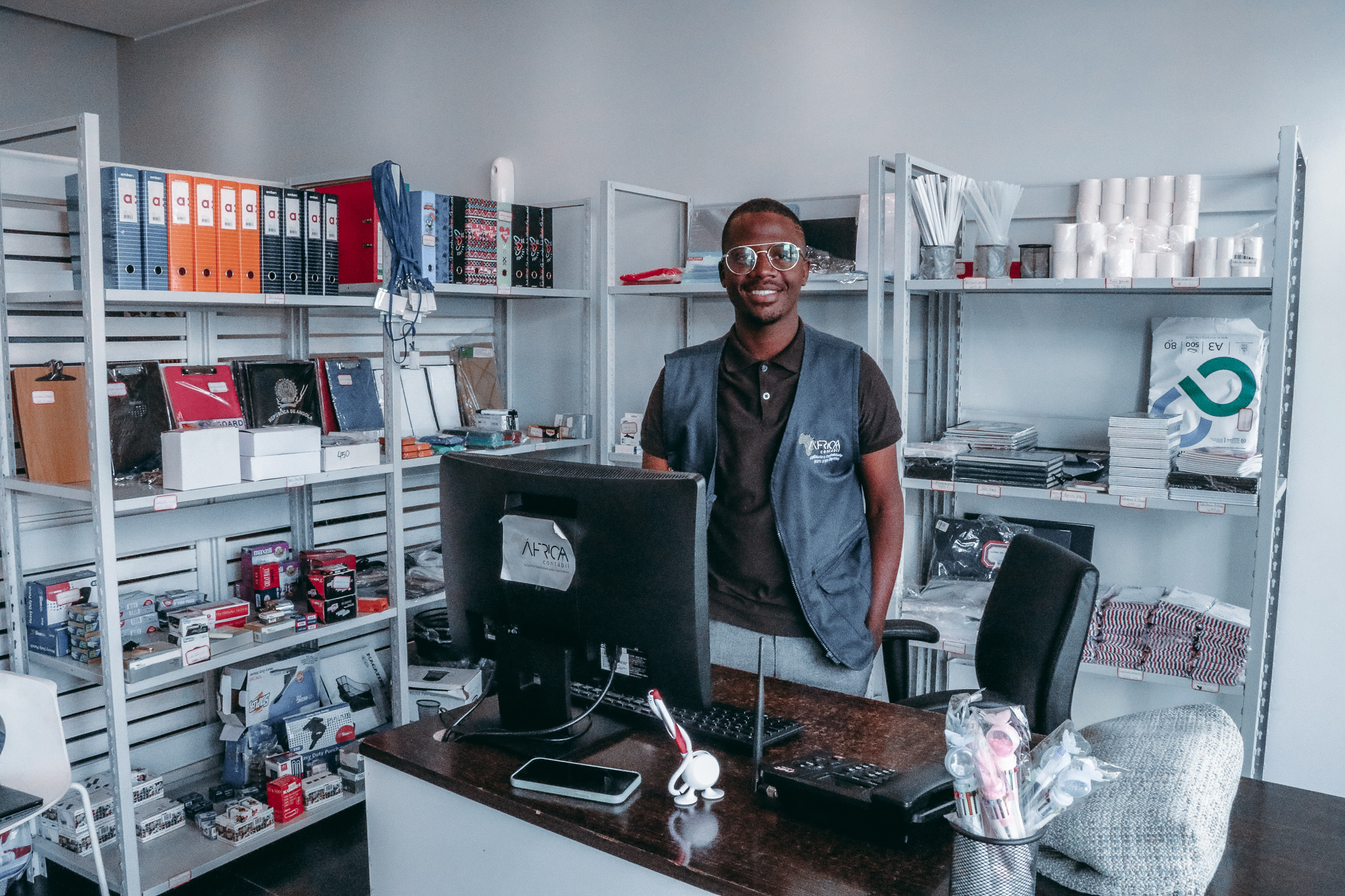
Young entrepreneur in Bié province adopted new digitalization strategies thanks to Crescer Digital program.
INAPEM and PNUD Digital implemented the Crescer Digital project in 6 provinces of the country, training more than 450 micro-entrepreneurs that employ nearly 2000 people in digital finance, using teaching methodologies on how to foster business in the digital ecosystem, with a view to sustainable growth of an economy powered by micro and small businesses.
Maria Banga is one of the informal operators who have joined PREI, implemented with support and technical assistance of the UNDP, under the leadership of the Ministry of Economy and Planning. PREI has funding from the African Development Bank, Government and European Union, to promote the formalization of informal operators in Angola to improve access to basic services such as commercial licensing, social security, micro-credit, and business development services.
"I saw PREI on television and I saw other people [joining], so I did the same thing," says the seller. She has been working at the Congolese Market in Luanda for 30 years and hopes that, with PREI, she will be able to "go ahead and improve her life."
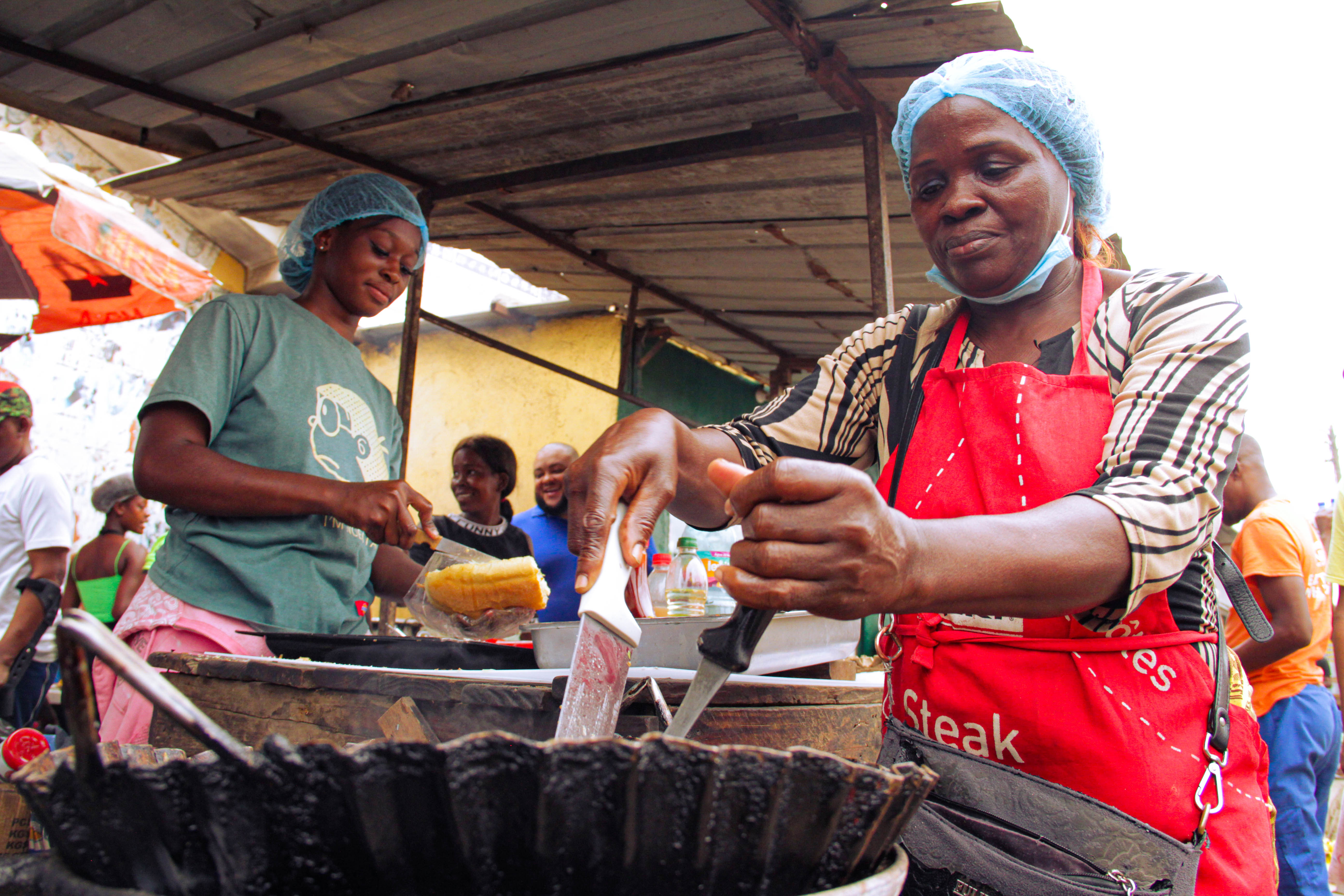
Maria Banga selling her products at the market in Luanda.
COVID-19 intensified the economic recession in Angola, with severe consequences for informal workers. Widespread informality is associated with weak social protection, food insecurity, poverty, limited access to skills development, low financial inclusion, and gender inequality. For Maria Banga, it is a victory to be enrolled in the National Social Security Institute again, but many informal workers still can't imagine what it could mean to have a safety net for the hard times.
Access to credit is another aspect that makes PREI appealing. By formalizing their businesses, sellers can apply for seed and venture capital financing from micro-credit financial institutions. However, to get there, they must first go through a training course on entrepreneurship and financial literacy, given by the National Institute to Support Small and Medium Companies – INAPEM.
Ensuring digital inclusion for all
As informal workers, the market and street sellers have no paid vacation, nor any social protection in case of illness, pregnancy, or in old age. In fact, the idea of a peaceful future is what attracted Maria Sambo most to PREI. "Social security is important to secure my old age," she says. After several years as a saleswoman in markets, Sambo had a formal job with a signed contract, but was laid off due to the COVID-19 pandemic, so she went back to selling in the market.
The transition to formality is meant to be inclusive; so, it is made with simple steps and the support of services that speed up and facilitate the process. At the Congolese Market, for example, sellers can get their "street vendor's card, bench card", identity card, birth certificate, "taxpayer's number, and social security number," says Luís Chie, PREI Coordinator at this market.
One of the main advantages of starting formalization, according to the coordinator, is getting all the documents, without paying. "Here the commercial certificate is free of charge. The commercial certificate outside is 21 or 22 thousand kwanzas," says Luís.
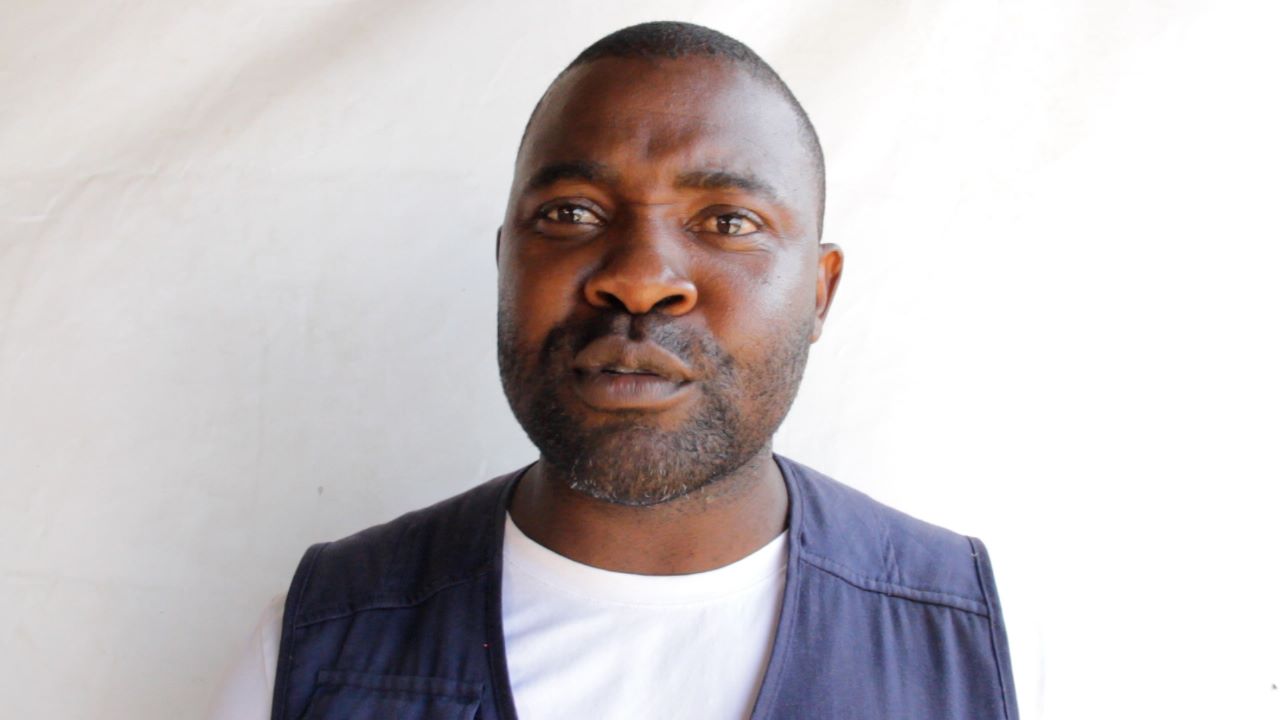
Luís Chie, PREI Coordinator of Congolese market shares guidelines for the transition process from informality to formality.
By August 2022, about 181,000 people had signed up for Mobile Money services and more than 36,000 people had received Micro Credit, according to PREI data. The Crescer Digital project reached 468 micro and small businesses, of which, 43% of the beneficiary businesses operated in the services sector; 26 Digital Business consultants were trained; as well as 28% of the businesses that benefited from consultancy, belonged to women.
UNDP's technical assistance to PREI is part of the office's new approach of working with a portfolio around the "Future of Work," with a focus on women and youth, to help create more jobs while promoting: 1) a diversified economy with greater employment opportunities and skills for youth and women; 2) inclusive work models that ensure the resilience, stability, and productivity of workers, particularly women and; 3) a sustainable and resilient environment and a green transition.
About PREI
The Informal Economy Reconversion Program is being implemented under the National Development Plan 2018-2022 to promote the Transition from Informal to Formal Economy in the country, with technical assistance from UNDP.
The agreement for the implementation of the three million dollars project, financed by the African Development Bank, was signed by His Excellency the Minister of Economy and Planning (MEP) , Dr. Mário Augusto João, and the UNDP Resident Representative in Angola, Dr. Edo Stork, on October 8, 2021.
The partnership between UNDP and MEP aims to promote an inclusive transition from the informal to the formal economy – with a special focus on women, youth, and the most vulnerable populations – as well as improve access to support services for business development and digital financial services (mobile money) and to strengthen the capacity of PREI’s technical management unit.
By early August 2022, some 246,000 people had joined the Informal Economy Reconversion Program, according to PREI data.

 Locations
Locations